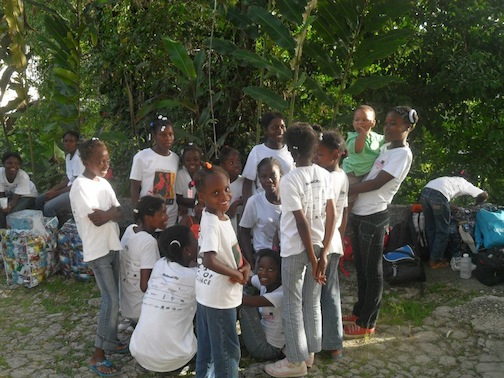Above: students at Haiti’s National Institute of Music
By the Caribbean Journal staff
Can classical music help Haiti’s development?
Haiti’s government thinks so, and has launched a new project to use classical music to help mentor the country’s youth, together with the National Institute for Music.
The plan will involve the creation of several youth orchestras, beginning with children who are not yet in kindergarten.
At first a pilot project in the area of Dopalais, the plan could eventually extend to all departments of Haiti.
The idea came in part from Haiti President Michel Martelly, after he watched the world-renowned Simon Bolivar Youth Orchestra on a visit to Venezuela last year.
It was officially launched Monday in a ceremony at the Karibe Convention Center in Petionville.
Raoul Denis and his sister, Pascale Denis de Moquete, the project’s leaders, said they were confident that it could have a positive impact on Haiti’s youth.
Culture Minister Mario Dupuy said that with Haiti’s rich culture of music, encouraging children, particularly those who are underprivileged and vulnerable, to thrive by practicing music is one of the “surest ways to give them confidence.”
Martelly, in a statement from the National Palace, emphasized the importance of music education for young people.
The ceremony was attended by Andres Gonzalez, a delegate of Venezuela’s El Sistema programme, which was founded in 1975 by Maestro Jose Antonio Abreu.
El Sistema (short for the National System of Youth Orchestras) is a state foundation in Venezuela that oversees 125 youth orchestras in the country.
Gonzalez said the initiative could help children learn to express themselves and become “true creators,” pledging that Venezuela’s government would help provide support to the project.
The success of Venezuela’s project led the Organization of American States to launch the Youth Orchestra of the Americas, which debuted in 2000.
A number of countries in the region, including Trinidad and Tobago and the Dominican Republic, have set up similar programmes.
